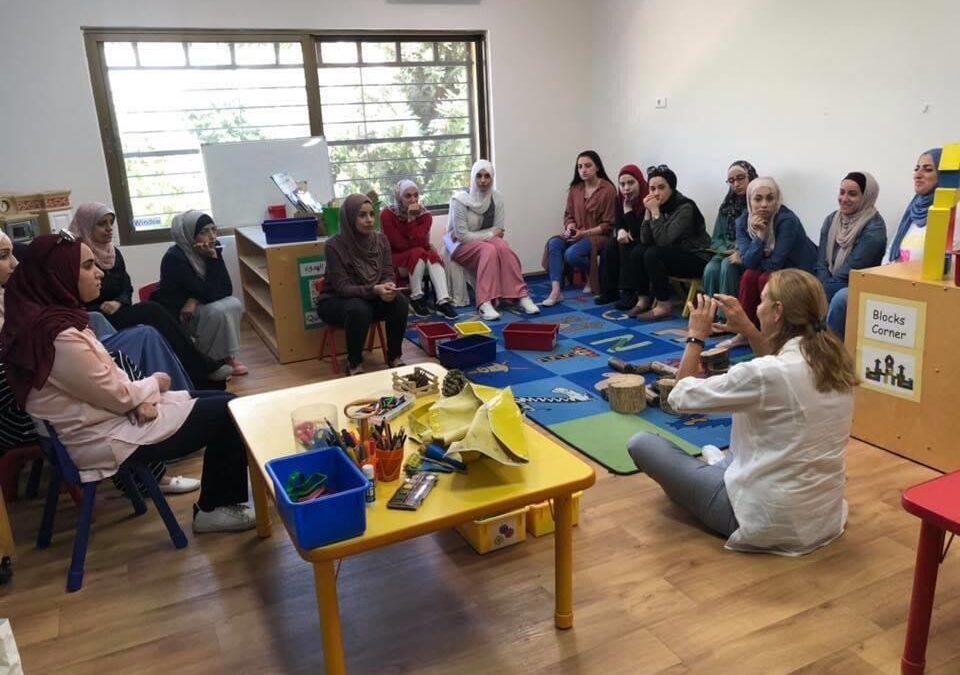Women’s rights groups and worker advocates in Jordan are hailing the re-opening of child care centers, a move they say enables women running small day care centers or working in larger nurseries to support themselves, while ensuing safe care for the children of women returning to their jobs after the novel coronavirus closures.
The more than 1,400 day care facilities across the kingdom opened July 4 under strict safety measures to limit the spread of COVID-19, including masks, social distancing and weekly exams for the children.
Since the beginning of the coronavirus crisis, “we called on the government to pay attention to women’s work conditions and labor rights in general, day care workers in particular,” says Randa Naffa, co-founder of SADAQA, an organization founded by working parents to advocate for family-friendly work environments.
As SADAQA campaigned to open day care centers, the organization joined with the Women in Business Arabia Network to create an online platform that shed light on the challenges day care center workers face, and spearheaded a Facebook campaign urging the opening of day care facilities.
“Women’s participation in the labor market is very weak, and the absence of the day care facilities is one of the reasons why women don’t join the labor market or withdraw from it,” says Naffa.
Women Back to Work Without Safe Places for the Children
Day care centers, which serve 50,000 children, remained closed weeks after other private-sector businesses were allowed to open, even though “working women had no choice but to go back to work,” says Tasneem Dudin, owner of a day care facility. Without access to licensed facilities, women were faced with a choice to leave their children alone at home or send them to unregistered nurseries that may not be following safe health practices, she says.
“Day care facilities are usually small projects for women who are struggling and facing the economic and social challenges,” Dudin says. Most facilities do not have bank accounts and typically employ workers day to day. Dudin estimates that some 90 percent of the facilities could not pay rent or workers’ wages after they were closed during the lockdown.
“The owners of these facilities couldn’t pay wages because of the economic crisis and many workers have been laid off and ended up unemployed,” says Mohammad Ersan, the host of Workers of the Country (عمال البلد), a worker-centered radio program launched last year in cooperation with the Solidarity Center. The June show featured Naffa, Dudin and others who discussed the need to open child care facilities.
Saba Yaseen says she cared for her two children, ages 5 and 2, throughout the lockdown as she teleworked from home, and her husband had to take off work to care for them when she had to leave for urgent matters. But once back at work, she would have not choice but to send the children to unregistered facilities if the formal facilities did not open, she said on the radio program.

